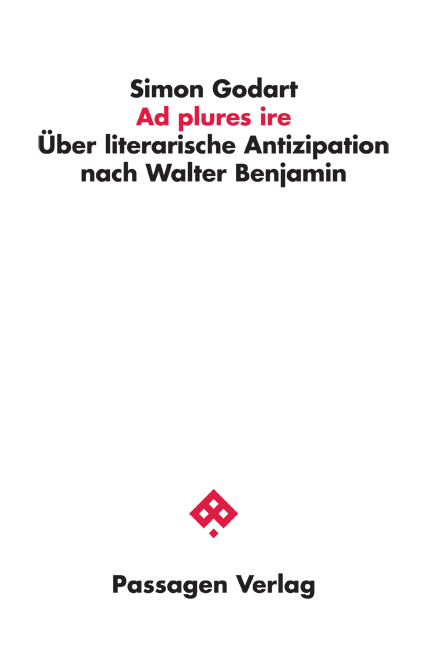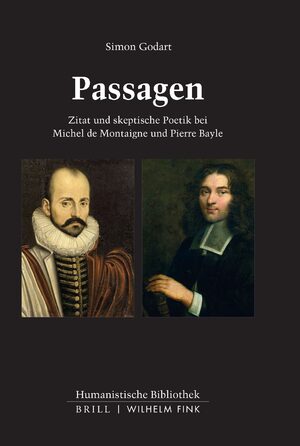Ad plures ire
Über literarische Antizipation nach Walter Benjamin (Wien: Passagen 2022)

That literature still reaches us over centuries is not solely our achievement. Our current reception corresponds with a past anticipation that is inscribed in the texts. Literary communication takes place between times and creates a collective, it speaks to a „we“ that it must anticipate and yet can only expect.
“ ‚Ad plures ire‘ meant to die for the Latins,“ Walter Benjamin reminds us and gives euphemism an unforeseen afterlife. Going to the many no longer sugarcoats death, but becomes a symbol of aesthetic and philological experience. These many form a collective of the deceased, who still address us through writing, speak to us, and await us. The essays gathered here attempt to follow this collective through Ovid, Montaigne, Lacan, and finally Benjamin, and describe its persistence. Reception corresponds with literary anticipation, the impossible yet necessary anticipation of the many future readings that every text brings with it.
Passagen
Zitat und skeptische Poetik bei Michel de Montaigne und Pierre Baylee (Padeborn: Fink 2021)

How does the use of the words of others in quotation relate to thinking and to the form of skeptical discourse in the French Late Renaissance and Early Enlightenment?
Montaigne’s emprunts from humanistic scholarship are a central component of the poetics of his Essais; his characteristic peinture de passage orchestrates a shift of voices within his large humanistic self-portrait. Citation – avant la lettre, since Montaigne did not yet have the concept and convention – becomes a formal means of skeptical writing that seeks to keep things in suspension. Pierre Bayle takes up this technique in his „Dictionnaire historique et critique“ to reshape it with the means of bibliographic precision; now conventionalised in quotation marks and footnotes, quoting becomes the critical modus operandi of a skeptical shaking of the historical foundations of the philosophical tradition.
Bildbruch. Beobachtungen an Metaphern (Berlin / Basel, since 2020)

Bildbruch is an online journal that appears several times a year. Founded by me and Sina Dell’Anno in 2020, it is devoted to the ‚observations on metaphors‘ in philosophy, philology, and literature, endebted to the concept of metaphorology after Hans Blumenberg. In focussing on catachrese / „Bildbruch“ rather than metaphoricity, our journal is interested in the linguistic conditioning of thinking and knowledge, which is exemplified wherever catachrestic moments arise: in semantic frictions between two intertwined images or between expression, figurative transposition and meaning. Bildbruch sees itself as an open forum for the observation and processing of metaphors and metaphorical complexes and their literary, historical, and systematic functions – especially at moments when they relate to their pictorial nature, when their figuration becomes fragile, and where the use of transfer capabilities results in a poetic or poetological, rhetorical, and intellectual-historical surplus. The metaphors that are thus brought into focus are catachreses in a double sense: they are at the same time „necessary and original“ and „abusive and excessive“ transfers, both upstream and downstream of the systems of rhetoric and philosophy – and it is precisely in this bipolarity that their explosive potential lies.
